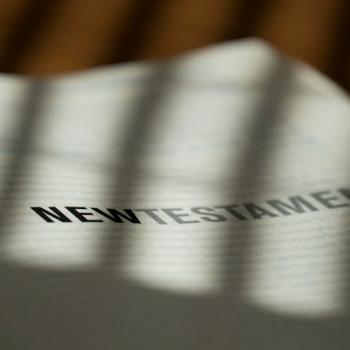My friends in the Hammer of Thor Kindred here in California have been organizing really good Heathen gatherings twice a year for well over ten years now. These are important events in my calendar, not to be overlooked. They are campout weekends, where you can meet and get to know other Heathens in excellent outdoor settings. In September, it is called Aegir's Feast; in April, it is Ostara. Yes, I know: Ostara should be in March, but attempts to hold Ostara in that month resulted in campouts remembered as Mudgard I, Mudgard II, Mudgard III, etc. Campouts work so much better after the rains have stopped, and Our Springtime Lady seems not to mind being put off for a month.
On the schedule at Aegir's Feast are several blóts, some classes on mythology and Heathen philosophy, and the Viking Games, a light-hearted decathlon of proud barbarianism. Events in the Games include spear and ax throwing, a little archery, impromptu rune poem composition, questions on obscure points of lore, and a few other odd things.
For each participant, the end of several minutes of increasingly breathless charging around the campground is marked by the event known as Whack the Monk. The "monk" is a head of lettuce impaled on a short pole. The timekeeper turns off the clock when you obliterate the lettuce with whatever weapon you have been carrying around the course. Some folks like swords, but I prefer to use my hall hammer, a small sledge that makes a satisfying splat.
After returning home from one of these weekends, I told a friend about the Viking Games, from the rune poem on through Whack the Monk. She was not pleased, and I received quite a lecture on religious intolerance.
The "monk" in this case represents the monks of Lindisfarne Abbey in northeast England, the sacking of which in 793 is the historian's usual marker for the beginning of the Viking Age. I've read several histories that suppose a completely opportunistic motivation for this event: the Abbey was poorly guarded and loaded with loot. A boatload of big guys with swords hear about this. They smile and ask each other "Why not?" Possible religious motivations are not mentioned, especially since Christianity had been a known minority religion in Scandinavia for a long time, and its existence there doesn't seem to have been a real problem to anyone until the Church started getting pushy.
More recently, however, a different explanation has been proposed, or at least suggested, for the Lindisfarne attack and at least some of what followed. Look at a timeline of European history around 793 and you'll see something else noteworthy nearby. In 782, Charlemagne executed about 4500 Saxon Heathen prisoners of war who refused to accept Christianity. That's more people than were killed in Pearl Harbor. It's more people than were killed in 9/11. And this killing didn't happen in battle: it was carried out deliberately and methodically, assembly-line style. It was but one event in a long religious war waged by "Charles the Great" against Heathens in Germany.
It is often said that history is written by the winners. I'm not sure that's always true: it looks to me like a lot of it is written by real losers these days. But it is necessarily true that history is written by those who write. Our Viking forebears didn't do much of that, except for the occasional runestone or wooden shipping tag. You've probably read "From the wrath of the Northmen, save us, O God." That was written by a monk. What did the guys coming up the beach have to say about it? Did this involve any vengeance for Charlemagne's religious war? We don't know, because they didn't tell us. Did they know about Charlemagne's religious war nearby to the south? Count on it.
Is it useful to carry a grudge for 1200 years? I know I just shake my head when I hear about what drives the ancient hatreds in the Balkans and wonder when they're going to get over it, but then I don't live there. Is it reasonable to ask the Islamic world to "get over" the Crusades? Whatever one may think of Islam, probably not. Nor should anyone forget the history of Jihad, which is just crusading by another name. Here in the U.S., many or even most of us now openly admire the Comanche, the Apache, the Lakota, and all the other tribes who didn't take the theft of their lands and lifeways and lives lying down, which resistance now seems downright American. And can we ask the Jews to stop remembering Egypt? Or Germany? Ever?
There is something here to let go of if we intend to get along with each other. And, if we intend to get along with each other, there is something else to never forget.





